🌍 Frontier Markets News, September 5th 2025
A weekly review of key news from global growth markets

Africa
Ghana and Nigeria increase energy cooperation
Ghana is reportedly considering a gas-for-power deal with neighboring Nigeria that could help both countries tackle chronic problems, GhanaWeb reports. Under the agreement, Nigeria would pipe natural gas to Ghana, which it would then use to generate electricity, some of which it would feed back into Nigeria.
- Ghana cedi’s world-beating performance upended by imports surge (Bloomberg)
For Ghana, the deal would conserve foreign exchange by swapping electricity for Nigerian gas rather than hard-currency. Nigeria would benefit from the increased power supply to help it tackle perennial electricity shortages. The gas and power transfers would take advantage of the West African Power Pool (WAPP), a regional program managed under the Economic Community of West African States (ECOWAS).
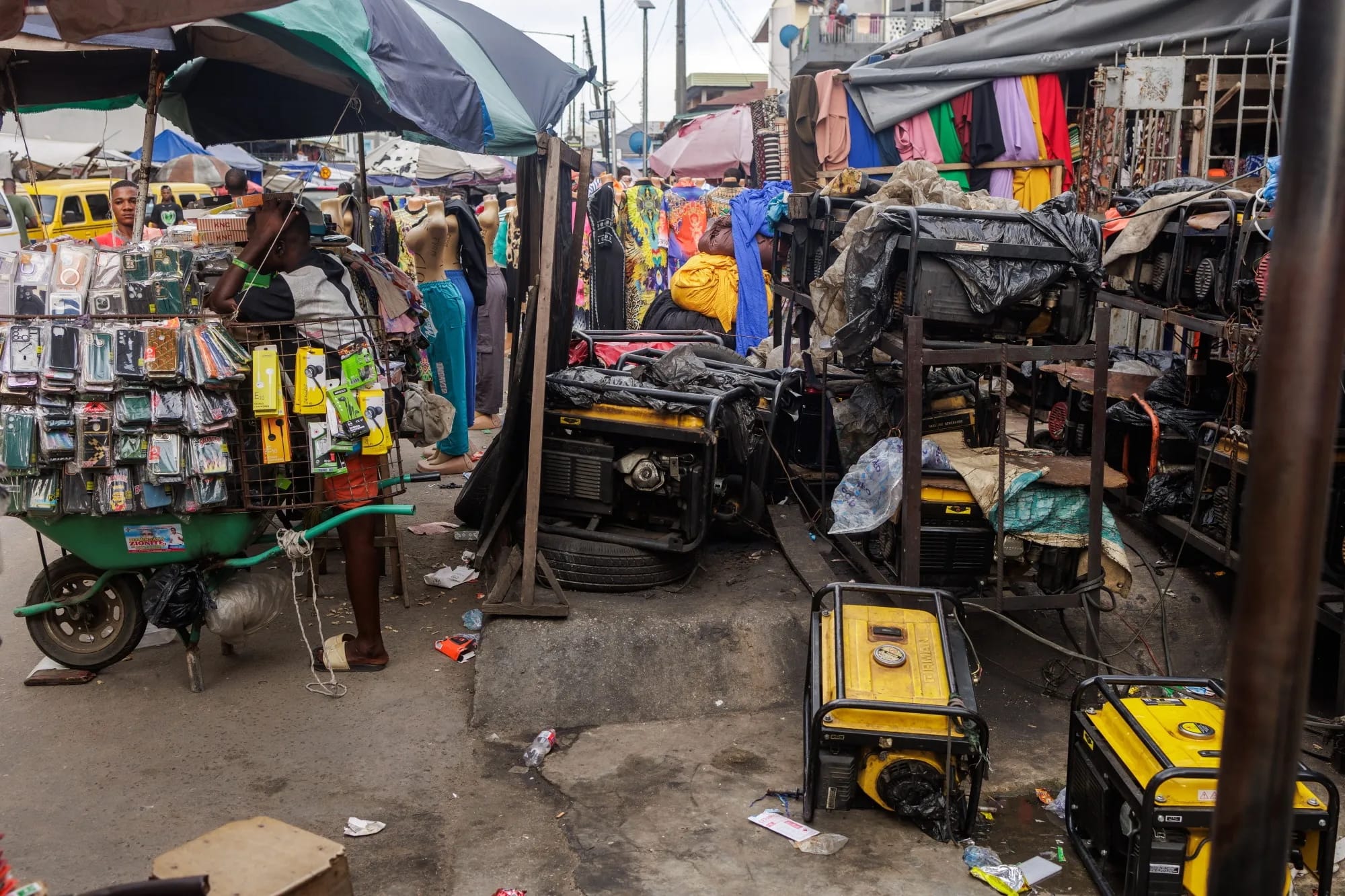
Ghana is also increasingly supplying crude oil to Nigeria’s giant Dangote refinery, Business Insider Africa reports. Running near 70% of its 650,000 barrels-per-day capacity, the $20 billion plant has added Ghana’s medium-sweet Sankofa crude to its feedstock—alongside US, Angolan and Brazilian barrels—to supplement the local supply. That diversification steadies Nigeria’s flagship downstream asset yet underscores upstream shortfalls that let Ghana supply crude into its neighbor.
Banks move to expand into Chad
Chad is drawing new entrants to its banking sector as a new framework established in January by the Central African Banking Commission enables licensed lenders to expand across borders with far less friction.
Cameroon’s CCA Bank revealed this week it is moving to open its first out-of-country branch, which would become Chad’s 11th commercial bank. CCA’s expansion follows a similar move in June by Burkina Faso-based Coris Bank International, which launched its N’Djamena subsidiary in Chad after acquiring Société Générale Tchad.
Chad’s appeal lies in its fast-growing population of around 20 million, a stable euro-pegged currency (XAF) that lowers FX risk, and rising digital-finance headroom as mobile-money use increases. The country is also severely underbanked, with roughly 7% of the population having access to formal financial services, creating considerable room for growth.
Asia
International investors dump Vietnam holdings
Global investors pulled $1.5 billion out of Vietnamese stocks in August, Bloomberg reports, marking the largest monthly outflow since the platform began tracking data in 2009.
Almost a third of the outflows were in a single stock, Vingroup, which is the largest conglomerate in Vietnam.
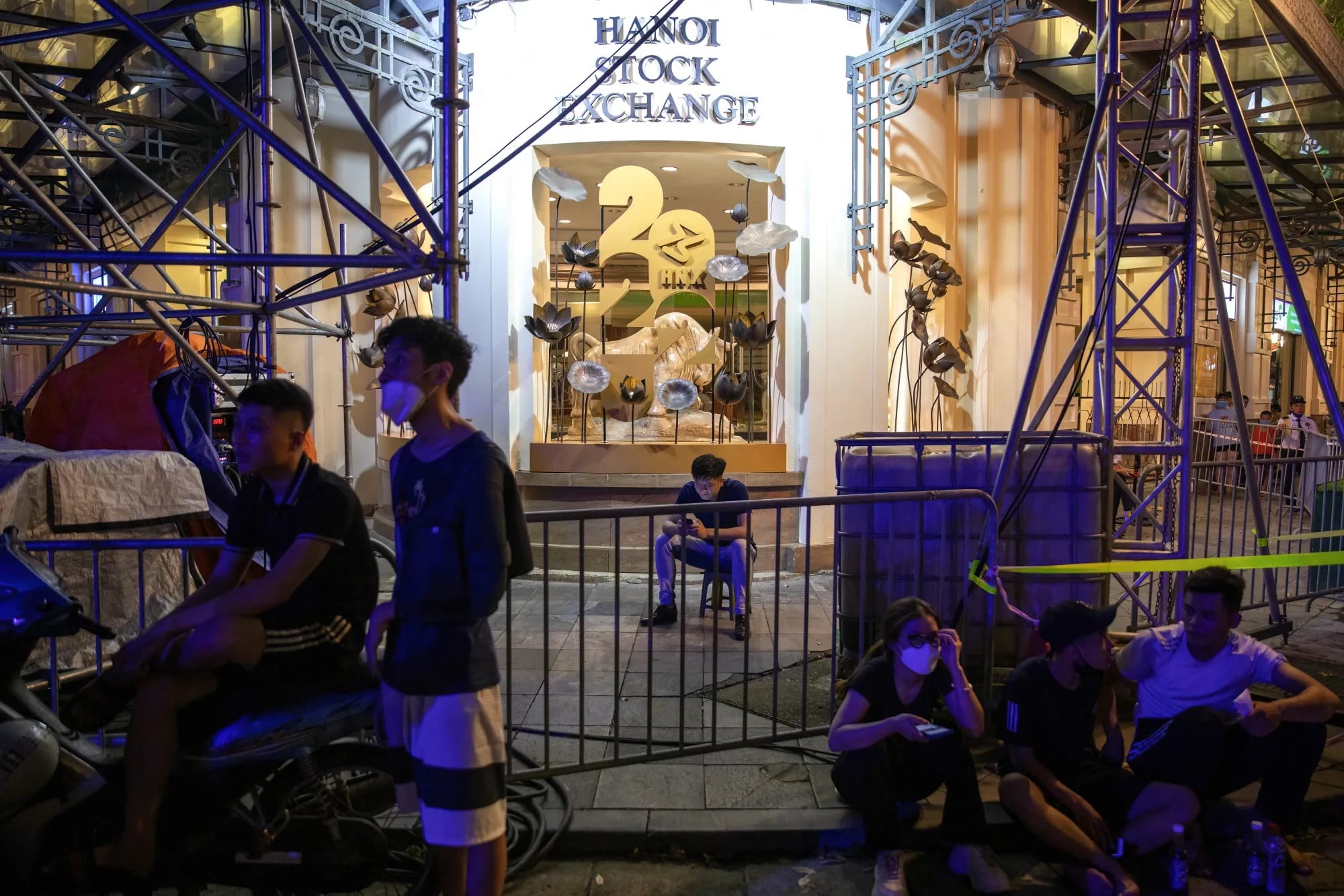
The exodus followed a surge in Vietnamese markets that has taken the country’s benchmark stock index up more than 30% this year, leading some analysts to speculate that the outflow is driven by profit-taking. Vietnam’s currency, the dong, has been the worst performer in Southeast Asia this year, falling steadily to reach a record low in August.
Laos inaugurates largest wind farm in Southeast Asia
The biggest onshore wind farm in Southeast Asia has opened for business in Laos, the companies that developed it announced on Thursday. The 133 wind turbines in the Monsoon Wind Power Project are expected to produce some 600 megawatts of electricity to be sold over 25 years to a Vietnamese public power utility, Nikkei reports.
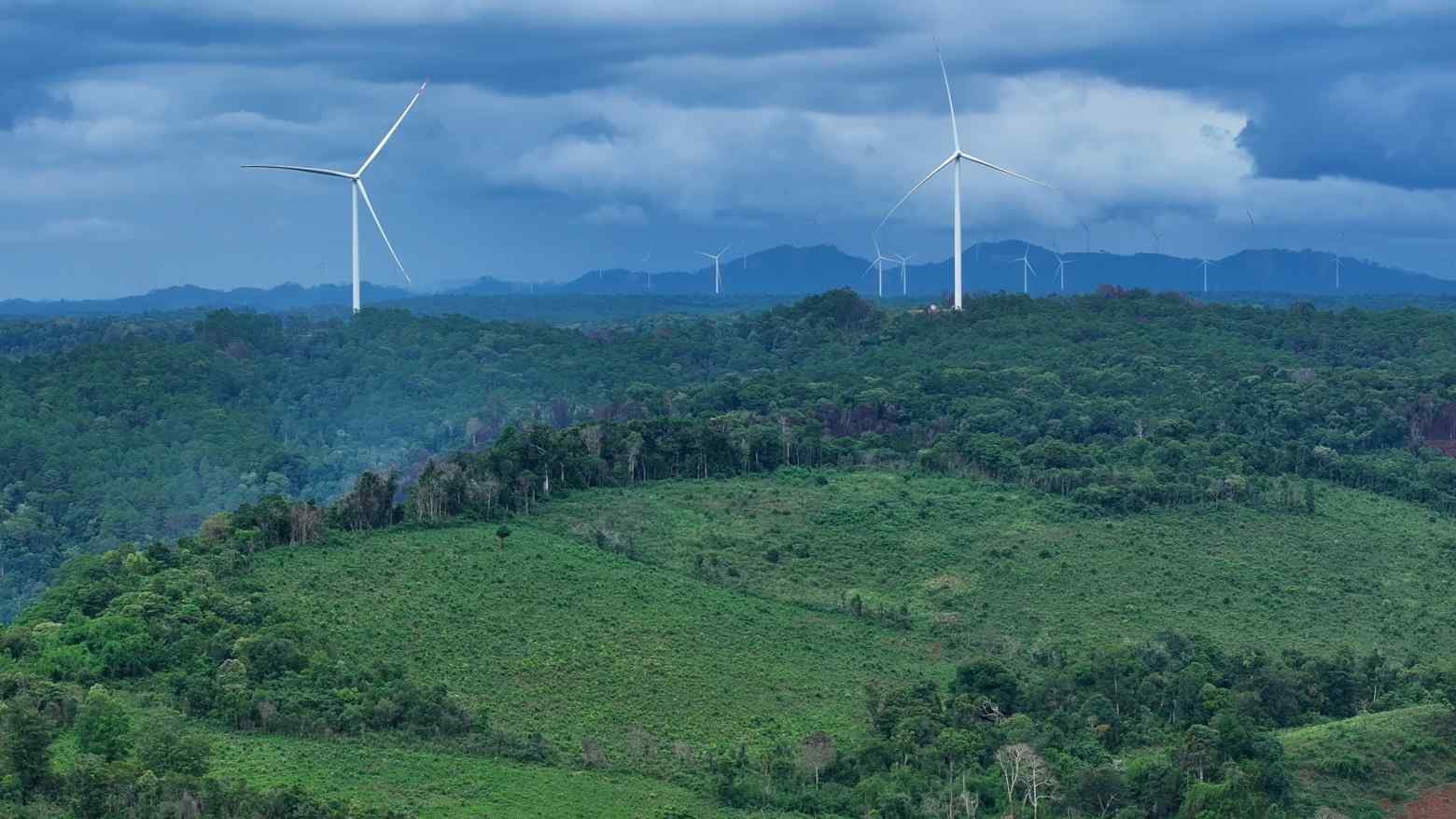
The wind farm will diversify Laos’ energy mix and provide a boost for the landlocked economy. Laos produces more than twice as much energy as it consumes, according to the International Energy Agency, with hydropower dominating local electricity consumption.
The wind project has accumulated almost $1 billion in investment from backers in Japan, Laos, Singapore and Thailand since development began 14 years ago.
Deadly Indonesia protests prompt president to skip China summit
Thousands of demonstrators took to the streets in Indonesia this week in protests triggered by anger over lavish perks afforded to the country’s politicians, DW reports. The protests were initially peaceful but some turned violent after a demonstrator was run over and killed by a police vehicle.

The protesters have been energized by an economic picture painted by Jakarta that they say is at odds with their personal experiences. According to official statistics, the poverty rate in Indonesia fell to a 20-year low in July, while GDP soared 5% last quarter. But Indonesian economists have questioned those numbers and individuals say they are struggling to make ends meet, the Wall Street Journal reports.
In response to the protests President Prabowo Subianto cut some of the benefits for lawmakers and paused his trips overseas—although he still left the country to attend China’s military parade commemorating the 80-year anniversary of the end of World War II. At least 10 people had died as of Wednesday, Al Jazeera reports.
Middle East
Credit rating upgrade drives optimism on Omani equities
Oman’s Muscat Stock Exchange (MSM) has been surging on the back of an upgrade to investment grade by Moody’s in July, AGBI reports. Unlike rises in other GCC exchanges, August’s 52% rally in the MSM is broad-based, reaching across sectors such as financials, industrial chemicals, telecoms and oil and gas.
The optimism over Oman is underpinned by strong fundamentals. Across the GCC, aggregate net profits for listed companies fell 8.7% year-on-year in Q2, whereas net profits for Omani listed firms rose 21.7% in the same period, Zawya reports. Ten out of 14 sectors in the MSM reported year-on-year profit increases.
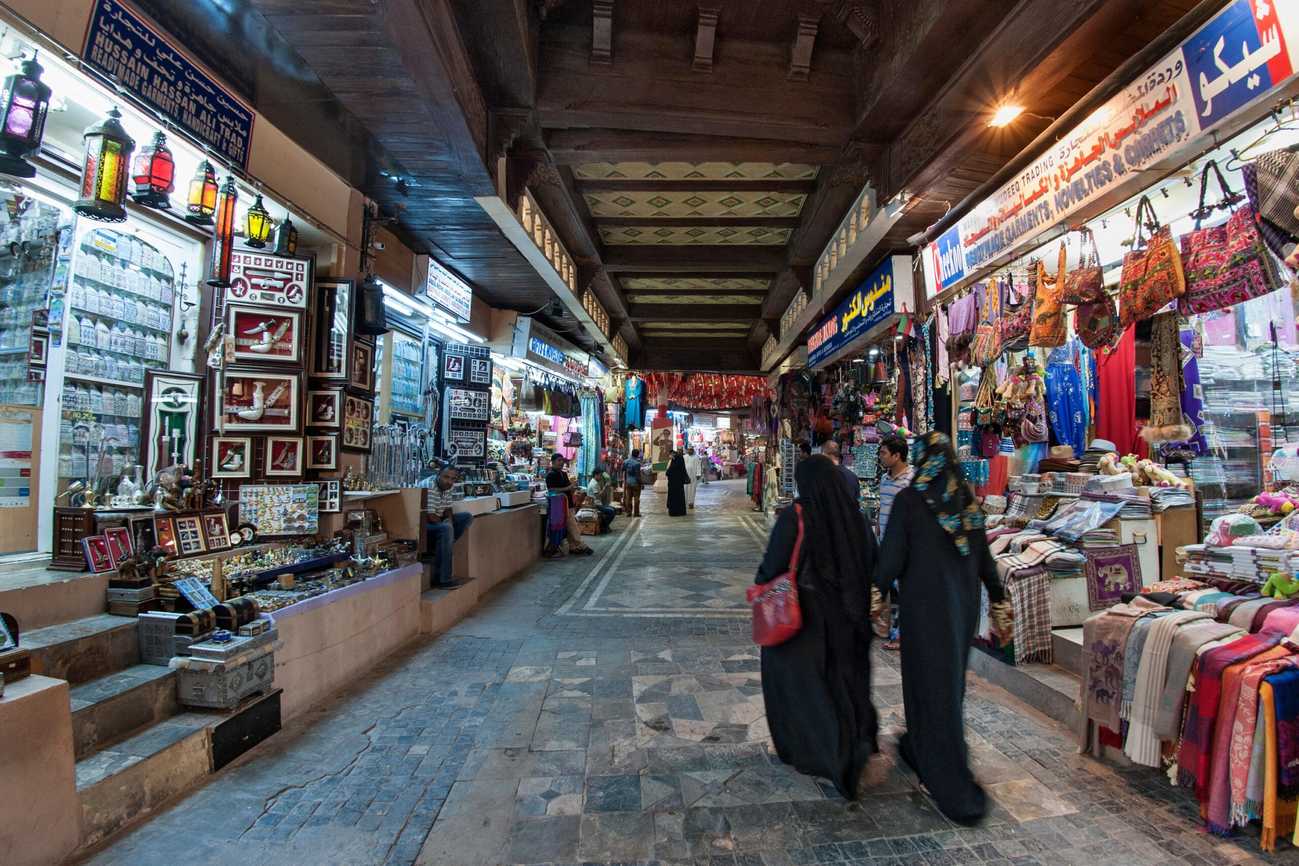
The August rise in the MSM, which was up 16% following a tariff-fear-driven slump, has breathed life back into Muscat’s IPO ambitions, Bloomberg reports. The country is also pushing ratings agencies for an upgrade from frontier market status, which would attract an estimated $1 billion in passive portfolio flows.
Syria ships first oil exports in years following US sanctions removal
Syria returned to the international oil market this week, shipping its first oil cargo in 14 years after the US officially lifted sanctions first levied on the Assad regime, Bloomberg reports.
With domestic demand fully satisfied by two domestic oil refineries now operating at full capacity, and investment commitments from Saudi Arabia and UAE to rebuild its energy sector and export infrastructure, Syria was able to export 600,000 barrels of crude—a major step toward restoring crucial foreign currency earnings.
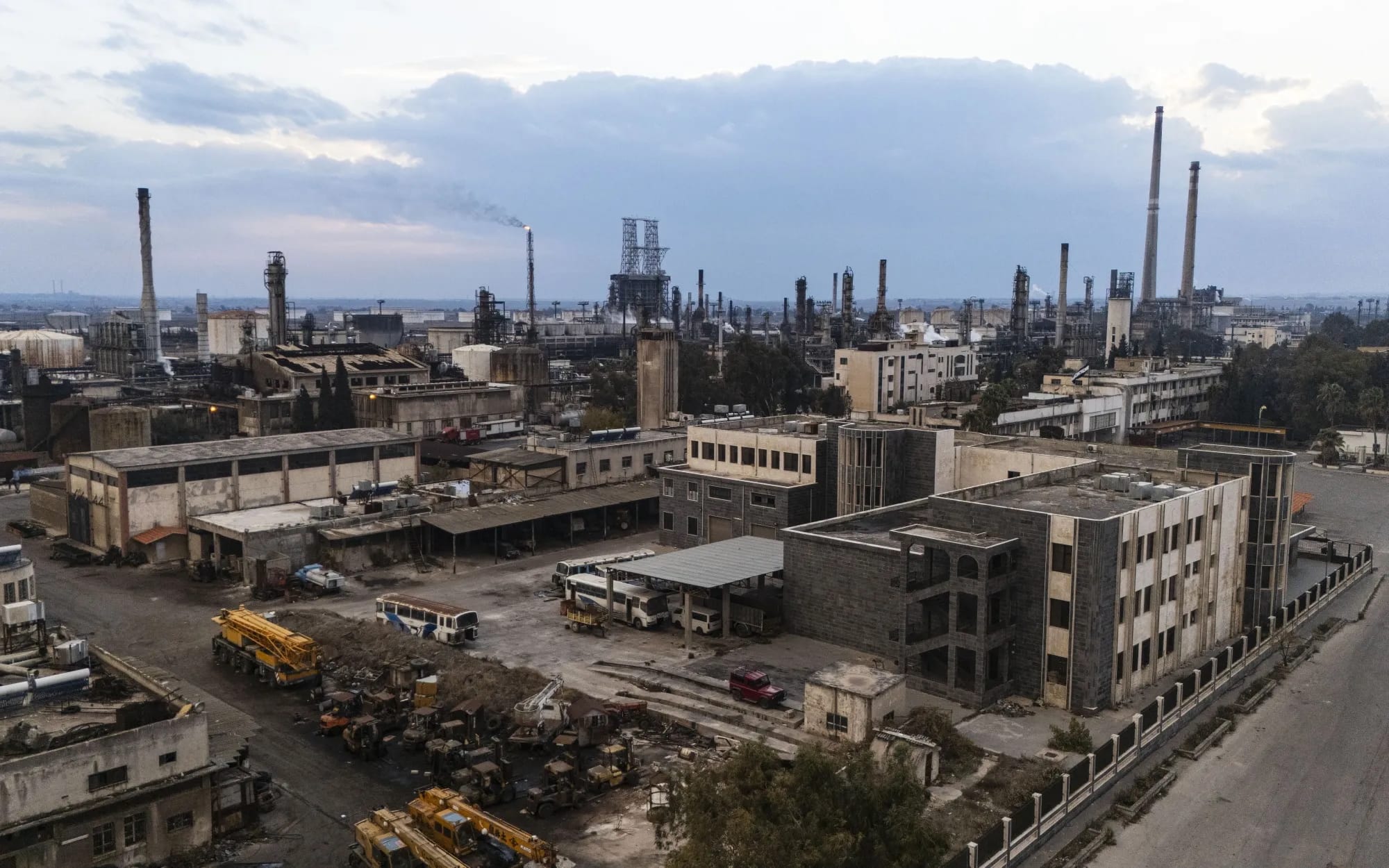
With the economic picture stabilizing, the UN says that some 850,000 Syrian refugees have returned home since the fall of the Assad regime last December, ABC reports. But key security issues remain—especially related to the remnants of Assad’s lucrative captagon drug trade, Israeli strikes ostensibly aimed at protecting Druze minorities, and intermittent sectarian violence in Alawite strongholds once considered bastions of Assad regime support.
Europe
Turkish stocks fall in face of growing authoritarianism
Turkish equities slid sharply this week after a court annulled the leadership of Istanbul’s main opposition political party, raising fears of a broader crackdown, the FT reports. The BIST 100 index initially dropped nearly 6% on the news, echoing the market panic that followed the March arrest of Istanbul mayor Ekrem İmamoğlu.
The Istanbul court ruled the Republican People’s party (CHP)—including provincial chief Özgür Çelik—had engaged in vote-buying and should be removed. Investors worry the ruling paves the way for further legal maneuvers to weaken opposition to Turkey’s President Recep Tayyip Erdoğan.
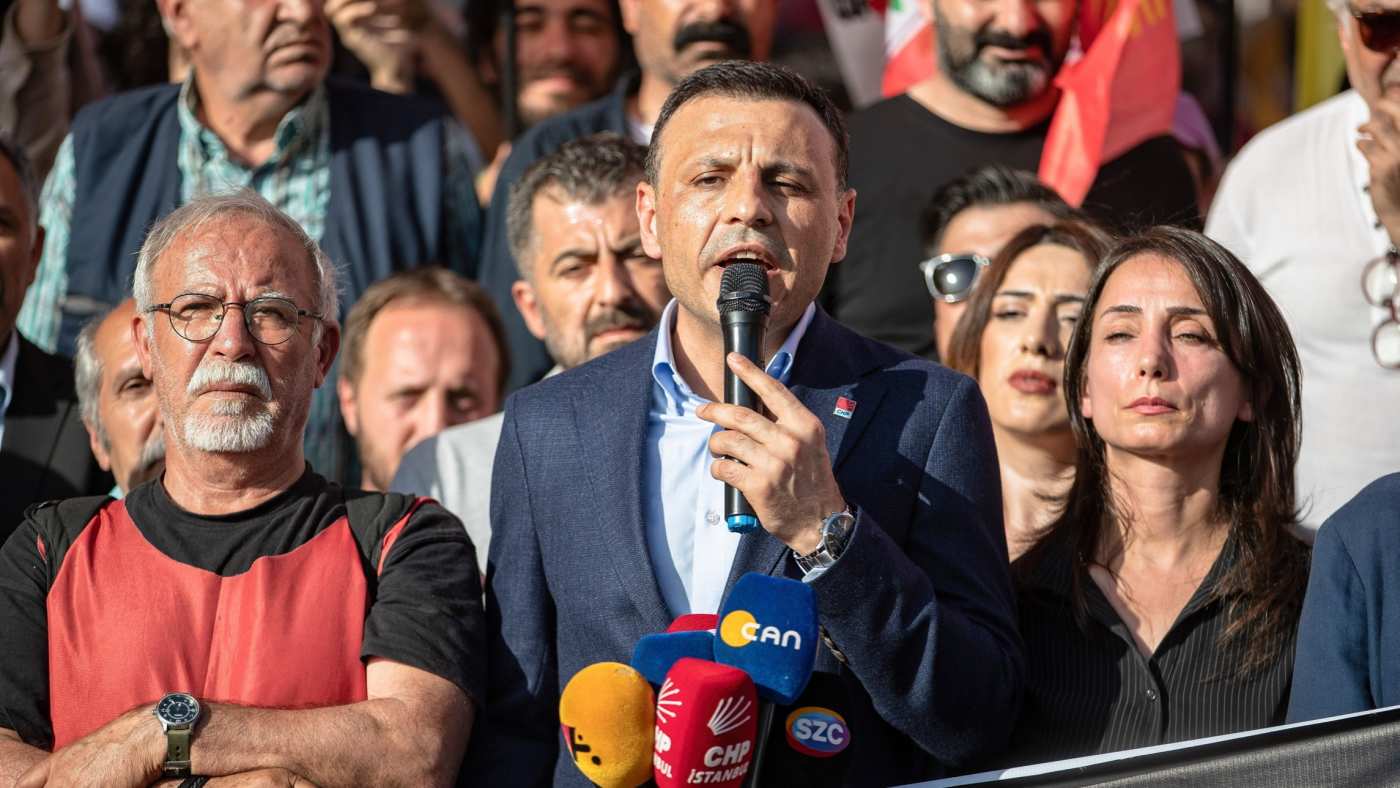
The government insists the judiciary is independent, but opposition leaders call the rulings politically motivated. Analysts warn Turkey is drifting from “electoral authoritarianism” toward outright one-party dominance.
The timing is notable: polls suggest the CHP would defeat Erdoğan’s AKP if elections were held today, with Istanbul—home to a third of GDP—firmly in opposition hands.
European companies look to Ukraine rebuilding opportunities
European firms are positioning themselves to participate in the reconstruction of Ukraine that is expected to cost more than half a trillion dollars, according to data reviewed by the FT. Governments and donors are expected to foot most of the bill, but private investment could reach $170 billion, focusing on energy, transport and housing.
- Ukraine launches lithium project to advance minerals deal with US (FT)
Some projects are already underway. ArcelorMittal has ramped up steel output in Ukraine, while Ireland’s Kingspan is investing €280 million in a building-materials campus. Vestas and Schneider Electric are partnering with local energy firm DTEK on wind power and grid modernization.
The push aligns with the principle of “building back greener,” making renewable and sustainable infrastructure central to recovery. And while significant risks remain, companies are betting that, as peace prospects slowly emerge, Ukraine will become one of Europe’s biggest growth markets for construction and energy.
Latin America
EU moves forward with Mercosur trade deal
The EU’s long-delayed trade deal with Mercosur is moving closer to ratification after Brussels offered new safeguards to protect European farmers, the Wall Street Journal reports. The agreement would create the EU’s largest free-trade area, linking 27 European economies with Mercosur’s 270 million people across Argentina, Brazil, Paraguay and Uruguay.
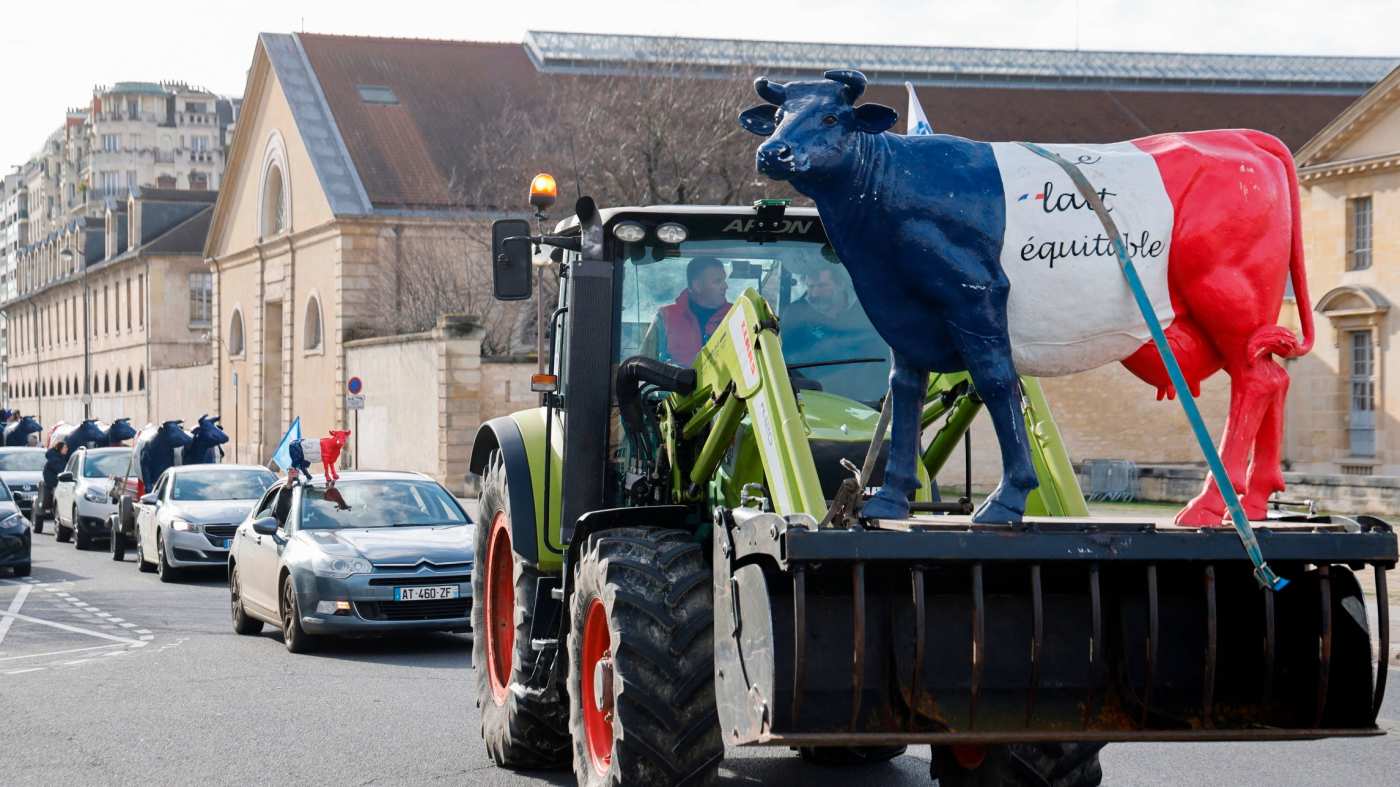
The deal promises to increase access for Mercosur countries to a wealthy consumer market, particularly for beef, poultry, sugar, and ethanol, and has the potential to reshape South America’s trade profile. Mercosur countries expect greater investment flows in manufacturing, technology transfer and renewable energy.
Brazil has emphasized that agricultural exports could rise sharply, while Argentina sees opportunities for niche exports such as wine and specialty grains. Paraguay and Uruguay, whose economies are smaller and more trade-dependent, hope to gain from broader access to EU capital and supply chains.
Argentine markets buffeted by rising political risks
Argentina’s government this week announced it would intervene in foreign-exchange markets after the peso slid and bonds tumbled in the wake of a growing political scandal involving President Javier Milei’s sister, BA Times reports. With political turbulence compounding economic headwinds sovereign bonds fell to their lowest levels since April, while corporates such as Banco Macro and Arcor are facing surging borrowing costs.
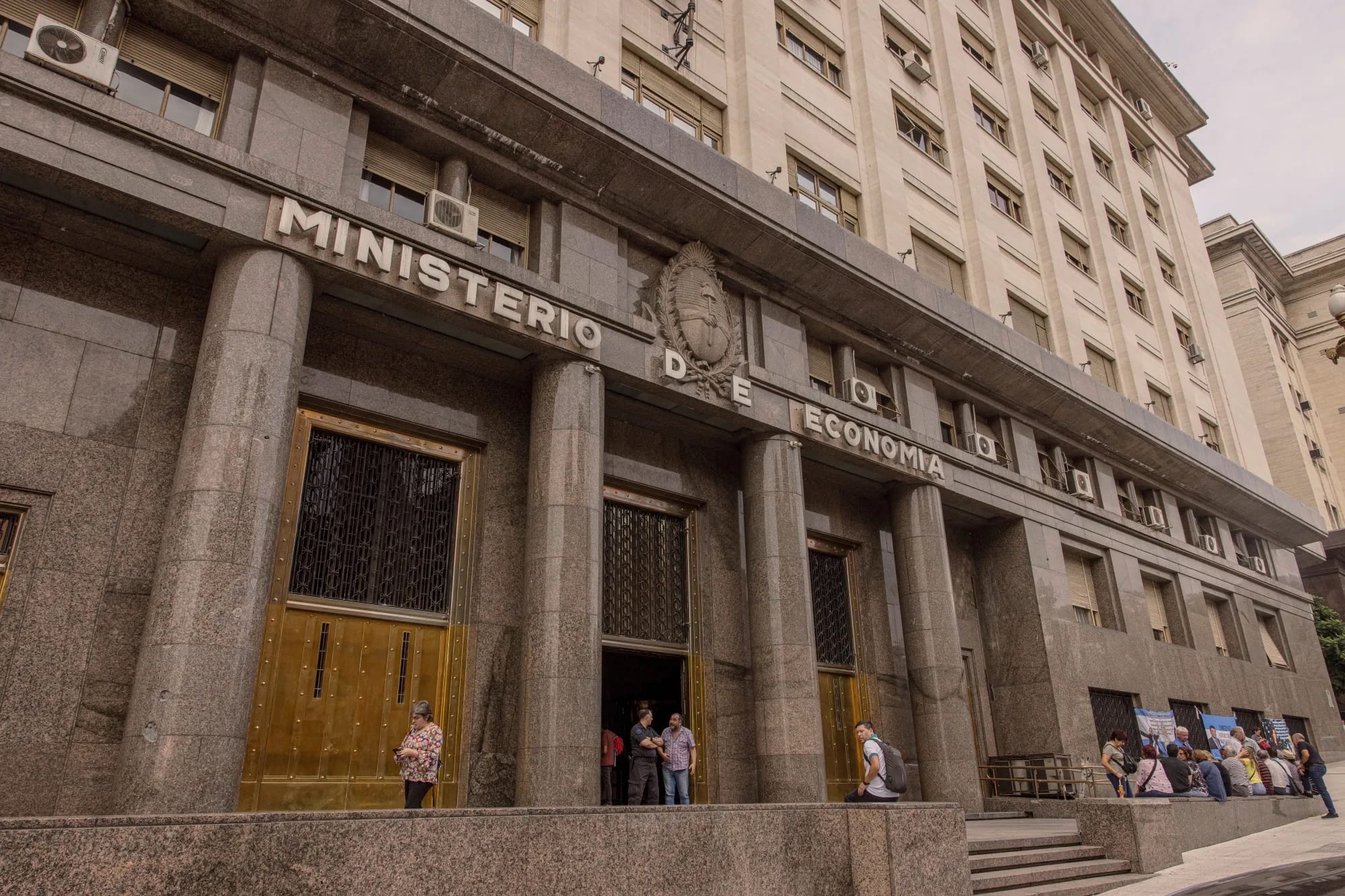
Analysts point to a range of issues, including an overvalued peso and restrictive monetary policy that has pushed short-term real interest rates above 30%, choking credit and driving defaults. The US added to the pressure by pausing talks on a visa waiver program, reportedly citing corruption concerns.
With midterm elections looming, Milei is keen to maintain the reform momentum, but the move to support the peso is being seen as a reversal by an administration that promised to freely float the currency. Investors are treating the Buenos Aires provincial election on September 7 as a referendum on Milei’s first two years in office.
Paraguay explores shifting allegiance from Taipei to Beijing
Paraguay’s Senate has requested a review of the country’s diplomatic recognition of Taiwan, reopening a debate with high geopolitical and economic stakes, Mercopress reports.
Advocates of switching to establish diplomatic relations with Beijing point to China’s $600 billion in regional investments, arguing Paraguay is missing out on trade and capital. Business groups counter that ties with Taiwan support existing markets and jobs, warning a shift could make the economy more vulnerable to competition from Chinese imports.
Global Macro
EMs accelerate shift to dollar alternative for borrowing
A growing number of emerging markets are swapping out dollar debt for cheaper alternatives, notably Chinese renminbi and Swiss francs, the Times of India reports. Panama borrowed $2.4 billion in francs in July, saving $200 million in interest costs, while Kenya and Sri Lanka are negotiating to convert dollar infrastructure loans into RMB. The calculus is simple, according to the FT: interest rates in the US are relatively high, and the dollar is expensive.
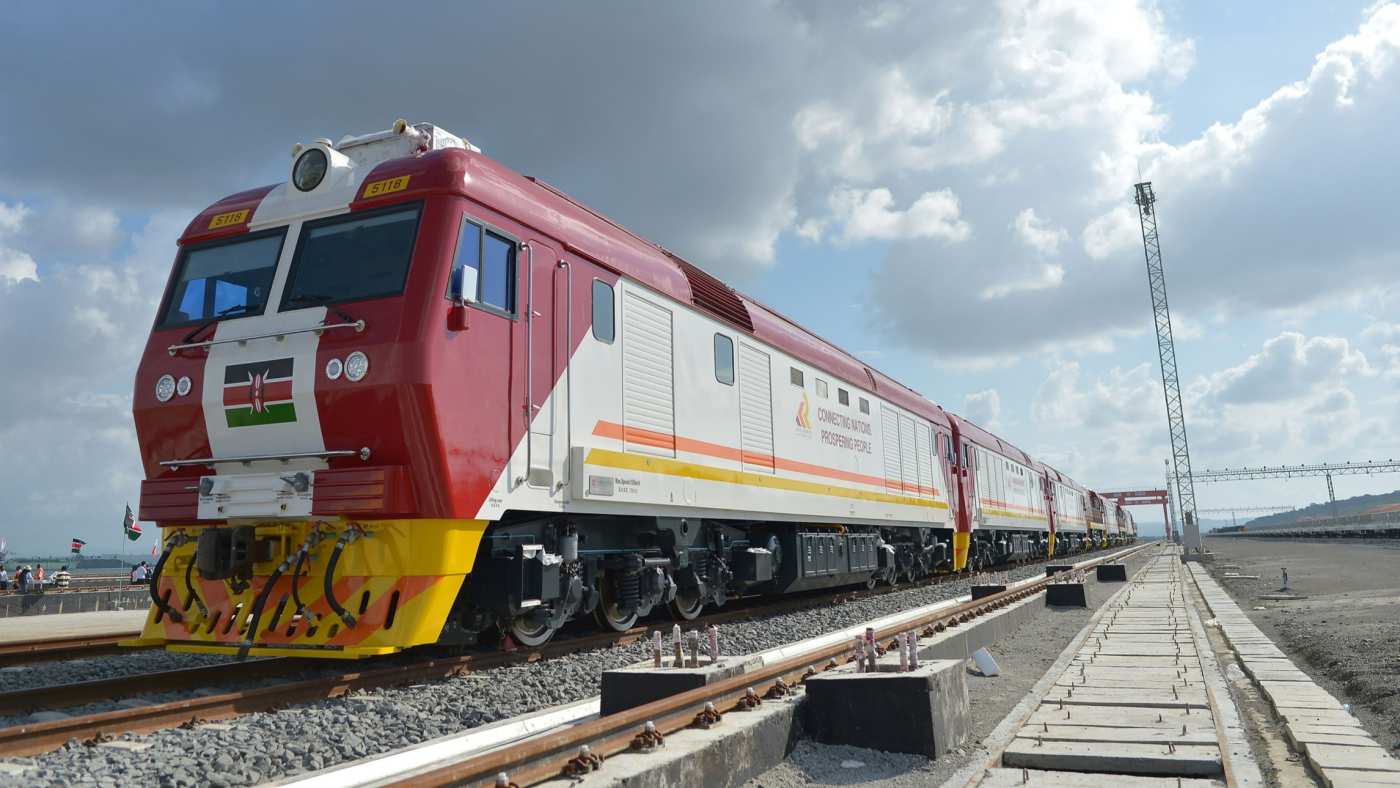
China’s Belt and Road lending has given Beijing leverage to denominate loans in RMB, while the Swiss National Bank’s zero rate makes its currency appealing. Still, structural limits remain. Borrowers lack export earnings in RMB or francs, forcing them to hedge FX risk. Analysts see the trend as tactical relief rather than a permanent shift from the dollar, which remains dominant in global bond markets.
Nonetheless, the diversification is notable. Colombia is exploring Swiss franc refinancing, and EM corporates have issued a record $239 billion in eurobonds this year. These moves highlight both the strain of dollar funding and the broader fragmentation of global finance in the Trump-era trade landscape.
What We’re Reading
Rwanda ratifies Rwf40bn deal with Opec (The New Times)
Senegal’s Banque Agricole launches CFA80bn securitized bond (EcoFin Agency)
Foreign purchases on Kenya’s Nairobi Stock Exchange hit four-year high (Business Daily Africa)
Namibia’s big ambition to become oil hotspot tested by wildcatter (Bloomberg)
Indian exporters look to expand in Africa to dodge 50% US tariff (Bloomberg)
China vows support for Myanmar’s SCO entry (Myanmar)
Thailand removes PM, will host election on Friday (AP)
Thailand’s private sector worries about prolonged political uncertainty (Nikkei)
Thailand forms special task force to enforce US trade regulations (Reuters)
Indonesia to cut exemptions for EV tariffs (Nikkei)
Trade war kills $2bn Cambodian solar industry (Nikkei)
Saudi Arabia and Iraq stop oil shipments to Indian refiner Nayara after EU sanctions (Bloomberg)
Saudi Arabia starts mortgage-backed security market to drive liquidity (Bloomberg)
UAE deepens Angola ties with slew of deals (Semafor)
Lebanon’s bonds escape infamous ‘20-Cent Club’ as reform bets grow (Bloomberg)
Slovakia’s PM Fico ‘wants to normalize’ relations with Russia (Reuters)
Poland’s offshore wind venture draws foreign investors to Baltic Sea (FT)
Richest Colombians face hefty tax hikes (Bloomberg)
Peru inflation unexpectedly cools down to seven-year low (Bloomberg)
Shippers flock to China-backed high-tech port in Peru (Nikkei)
How the promise of riches from lithium mining turned to dust in Bolivia (The Guardian)
We are committed to providing FMN readers with a free weekly digest of politically unbiased, succinct and clear news and information from frontier and small emerging markets.
Please consider becoming a paid supporter to help cover some of our costs and support our continued development of sharp markets-focused coverage and new informational products. Paid subscribers will also gain exclusive access to our quarterly EM/FM report that aggregates EM insights from 25 major banks, international institutions and consultancies.





